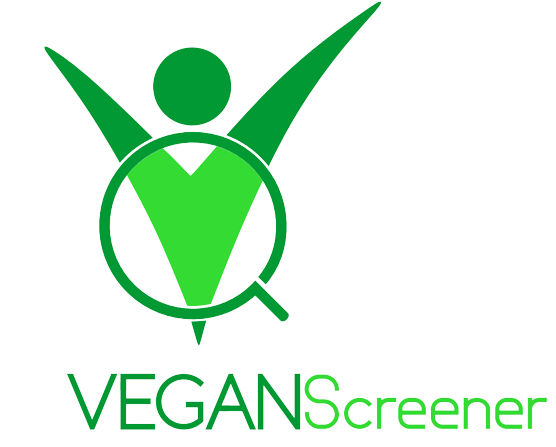The VEGANScreener project is organized into 6 work packages over the 36 months duration of the project – working groups dedicated to a specific set of activities. Below, we provide succinct information on each of these six WPs, including a brief outline of work plan and methodology.

WP1 – MANAGEMENT AND COORDINATION OF THE PROJECT
WP coordinator: Austria (MUW), WP co-coordinator: Germany (IFPE)
Start date and duration: month 1 – 36
In brief: The objective is to provide efficient management and coordination of the project and the consortium and to ensure the progress of the project towards its planned objectives.
WP2 – DIET QUALITY SCREENER DEVELOPEMENT
WP leader: Germany (IFPE), WP co-leaders: Czech Republic (KVUH)
Partners: Belgium (UGhent), Spain (UNAV), Austria (MUW); USA (Harvard University)
Start date and duration: month 1 – 12
In brief: In WP2 we aim to develop a diet quality screener for vegans using:
- evaluation of the existing literature on vegan diets and diet-disease relationships,
- exploratory analyses of our existing vegan diet datasets, and
- evaluation of existing vegan dietary guidelines and metrics.
These data will be synthesized and thoroughly evaluated to develop, pilot-test and calibrate a screener
among local key informants prior to rollout in WP3.
The screener will be designed to address the following issues:
- Personalized nutrient intake adequacy (adjusted to sex, age, physiological status, physical activity)
- Main food (and supplement) sources of nutrients
- Warning/recommendations in case of suspected nutritional deficiencies
- Concordance of the food intake with current nutrition recommendations for the prevention of noncommunicable diseases (NCD)
- Environmental impact: addressing food carbon footprint; origin, referring to food transport, is only of minor importance for greenhouse gas (GHG) emissions, since transport accounts for about 5% of the dietary GHG emissions. The kind of food, meaning animal or plant, is the key determinant of GHG emissions.
WP3 – CLINICAL DATA ACQUISITION
WP leader: Czech Republic (KVUH), WP co-leaders: Germany (IFPE)
Partners: Belgium (UGhent), Spain (UNAV)
Start date and duration: month 1 – 18
In brief: To validate the diet quality screener for vegans (WP2) and to explore for novel biomarkers (WP5) WP3 will establish a multi-center, multi-national, cross-sectional study. 400 participants will be recruited at clinical study sites in Germany (IFPE), Spain (UNAV), the Czech Republic (KVUH), and Belgium (UGhent). Data will allow for thorough validation of the novel screener against other dietary intake self-reporting reference methods. Within the group, a nested sub-group (n=300 participants from Germany (IFPE), Spain (UNAV) and the Czech Republic (KVUH) will be in addition validated against reference concentration/recovery biomarkers and metabolic health indices.
WP4 – DIET QUALITY SCREENER VALIDATION
WP leader: Spain (UNAV), WP co-leader: Austria (MUW), Collaborator: USA (Harvard University)
Partners: Germany (IFPE), Czech Republic (IMB), Belgium (UGhent)
Start date and duration: month 18 – 30
In brief: In WP4 we will conduct a series of lab and statistical data analyses.
WP5 – METABOLIC IDENTIFICATION OF VEGAN „SUBTYPES“ WITH OMICS APPROACHES
WP leader: Czech Republic (IMB), WP co-leader: Belgium (UGhent)
Partners: Austria (MUW)
Start date and duration: month: 1 – 30
In brief: We aim at evaluating associations between diet composition and serum metabolite profiles related to different plant-based dietary patterns. Digestion and absorption of macronutrients is affected by the food matrix, meal composition and preparation methods, hence complicating the translation of dietary assessment into nutritional status indices.
WP6 – DISSEMINATION OF RESULTS
WP leader: Austria (MUW), WP co-leader: Spain (UNAV)
Partners: Germany (IFPE), Belgium (UGhent), Czech Republic (KVUH, IMB)
Start date and duration: month: 24 – 36
In brief: WP6 translates the project’s findings into recommendations for stakeholders, practical tools and guidelines, and disseminates them to the broader scientific community and the public using primarily digital channels (Tasks 6.1 and 6.2). The dissemination plan (Task 6.3) is intended to help shape the research and bring the results to as many relevant stakeholders as possible, including researchers, practitioners, vegans and eventually also other groups intentionally reducing animal products intake (voluntary reductarians as well as patients on restrictive diets as part of their treatment) or at specific risk for nutrient deficiencies, e.g., pregnant women and those with diagnosed deficiencies (e.g. patients with mental anorexia, iron and iodinedeficiencies etc.), policy makers, industry members, and the general public.
